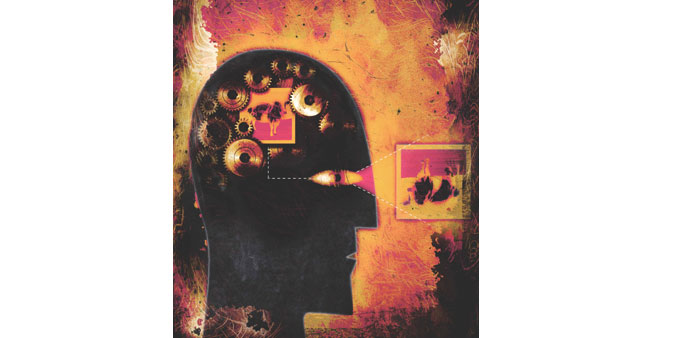By Oliver Burkeman/New York
Until recently, I’d assumed that most people think of their life as a story, a narrative unfolding from birth to death – albeit not necessarily a story of interest to anyone else. (The banality of some popular celebrity memoirs –My Life In Chuckling, Some Goals I Scored, that sort of thing – suggests that gripping stories are thin on the ground.) But I’d have agreed with the philosopher Daniel Dennett that “we are all virtuoso novelists… we try to make all of our material cohere into a single good story. And that story is our autobiography”.
Could you have a meaningful life without this sense of continuity, this feeling that you are the person to whom your childhood happened, and who’ll experience your old age? Surely nobody could think of the scenes of their life – childhood summers, first romance, bereavements – as lacking any connecting thread whatsoever?
But Galen Strawson, another philosopher, says this is exactly how he experiences the world, and he suspects he’s not alone. “I have a past, like any human, (and) I have a respectable amount of factual knowledge about it,” he concedes in Against Narrativity, a 2004 paper highlighted recently by the behavioural scientist Jess Whittlestone. “Yet I have no sense of my life as a narrative with form.”
Strawson is not an amnesiac, like Guy Pearce in Memento, constantly forgetting his experiences. It’s just that these experiences don’t feel as if they meaningfully belong to the present-day him. They are barely more connected than last week’s episode of True Detective is to next week’s episode of Gardeners’ Question Time. The question, “What has Galen Strawson made of his life?” is, he insists, one in which he’s “completely uninterested”.
It’s tempting to think of such people – “Episodics,” Strawson calls them, as opposed to “Diachronics” like the rest of us – as vaguely morally suspect. Are they truly capable of saving for retirement or keeping their marriage vows? Yet there are downsides to being a Diachronic, too. As Whittlestone points out, it’s constraining: faced with some big dilemma – a junction in your career or love life, say – you might be lured into making a choice that fits with the “story so far”, when a radical change could be preferable.
Research also indicates that people with a weaker sense of a self persisting through time are more generous donors to charity, perhaps because they feel less urge to hoard cash for their future selves.
And being a Diachronic can get you down. I’d say I’m too interested in the question‚ “What has Oliver Burkeman made of his life?” Stressful decisions are usually stressful only because I worry Future Me might regret them. I doubt I’ll ever become an Episodic, but just knowing they exist, and imagining the world through their eyes, adds a lightness to my step. It’s much harder to fret about your future, or regret your past, when it doesn’t really feel as if they’re yours at all. - Guardian News and Media

